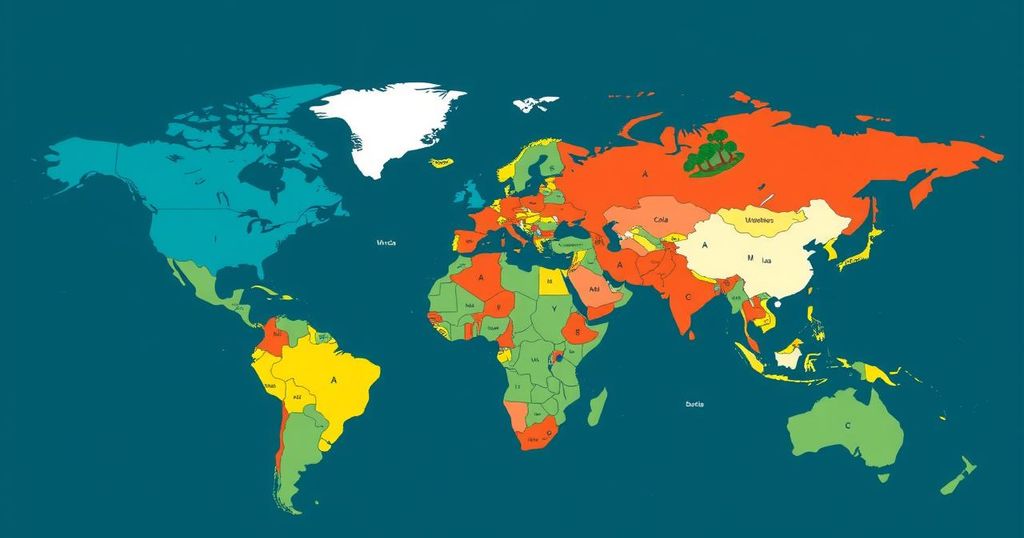Richer nations are beginning to provide financial compensation to poorer countries for climate change damages, as exemplified by payments made to victims of Cyclone Freddy in Malawi. Approximately $720 million has been pledged by countries such as the U.S. and European Union, although experts warn this may be insufficient. The COP29 summit is discussing the financial obligations owed to developing nations, emphasizing the humanitarian crisis caused by escalating climate disasters.
In the wake of catastrophic events such as Cyclone Freddy, which devastated southern Malawi, richer nations are beginning to recognize their responsibility towards poorer countries suffering from climate change. Cyclone Freddy prompted significant flooding, displacing approximately 650,000 individuals and disproportionately affecting subsistence farmers like Christopher Bingala, who received a vital compensation payment of $750. This payment exemplifies a new “loss and damage” funding approach, established to assist nations that contribute minimally to greenhouse gas emissions but endure the harshest repercussions from climate-related disasters.
Last year’s commitment from wealthier countries to create a fund for climate change damages has so far yielded approximately $720 million in pledges from entities including the European Union and the United States. Nonetheless, experts caution that this amount is insufficient, given the increased frequency of climate disasters. As nations convene at the COP29 climate summit in Baku, Azerbaijan, discussions are underway regarding the financial obligations owed to developing countries as part of a broader climate finance initiative.
Despite receiving timely support, Bingala’s journey towards recovery is fraught with challenges, revealing the systemic vulnerabilities within low-income communities. His family’s relocation effort showcases how financial aid from Scotland’s dedicated funding has enabled families across Malawi to rebuild and reinstate their livelihoods. Yet, many uncertainties remain, including determining how funds will be deployed to address a spectrum of climate impacts beyond disaster recovery.
There is a pressing and expanding demand for loss and damage funding, which could escalate to $250 billion annually by 2030 due to increasingly severe climate events. Prime Minister Philip Davis of the Bahamas stressed that failure to act would have dire consequences for climate-affected nations, cautioning that neglecting to address these issues could transform entire populations into climate refugees.
As discussions evolve and frameworks are developed, it is imperative for wealthier nations to enhance their contributions, not only out of moral obligation but also as a strategic defense against the far-reaching impacts of climate change, which do not recognize national borders.
The context surrounding the discussion of loss and damage funding stems from a growing acknowledgment that climate change disproportionately affects low-income countries that contribute minimally to global emissions. Events like Cyclone Freddy in Malawi highlight the urgent need for targeted financial assistance to help these nations recover from the increasing frequency and severity of climate-related disasters. The creation of a fund aimed at compensating these countries represents a significant shift in international climate policy, seeking to address the financial burdens incurred by nations least responsible for climate degradation yet most impacted by its consequences.
The emergence of loss and damage compensation illustrates a vital step towards accountability among affluent nations regarding climate impact. As discussions regarding the distribution of these funds progress, there remains a critical need for ongoing support to address not only immediate recovery but also long-term adaptation strategies for vulnerable communities. The international community must recognize its shared responsibility to assist those bearing the brunt of climate change, fostering a more equitable and sustainable future for all.
Original Source: www.keranews.org






